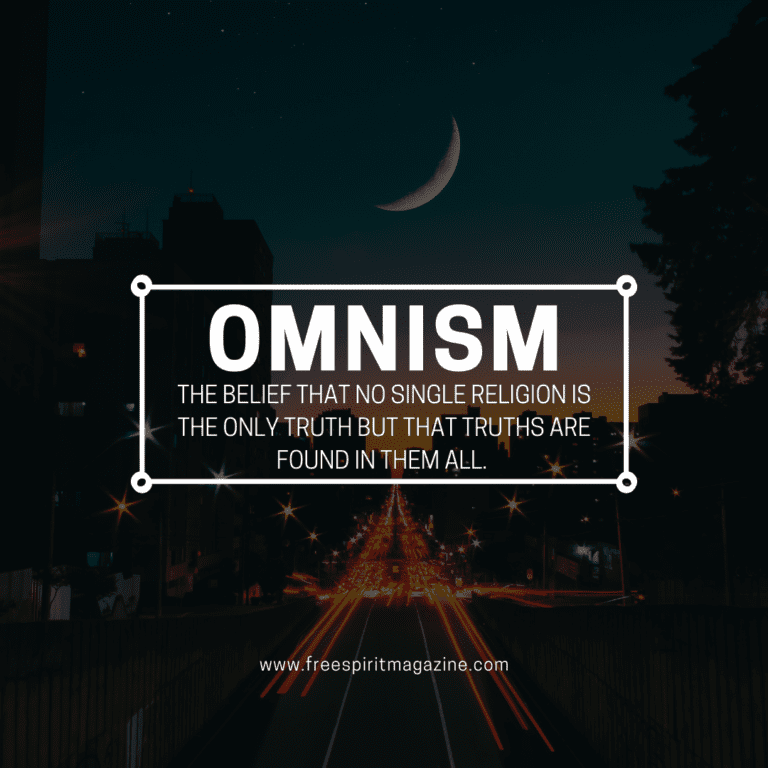In a world where religious conflicts often dominate headlines, a peaceful and inclusive approach to spirituality is gaining traction. Enter Omnism—the belief that no single religion holds the monopoly on truth but that truths can be found in all. This progressive philosophy is increasingly appealing to open-minded individuals, spiritual seekers, and interfaith communities. In this listicle, we’ll explore why Omnism is poised to become the next big thing in spirituality and how it can positively impact society.
1. Promotes Tolerance and Understanding
One of the most compelling aspects of Omnism is its emphasis on tolerance and understanding. By acknowledging the value in various religious beliefs, Omnism can bridge the divide between different faiths. This is crucial in today’s world, where religious conflicts are unfortunately common.
Example: According to a study by the Pew Research Center, nearly 75% of the world’s population lives in areas with high restrictions on religion. By fostering a culture of acceptance, Omnism can help reduce these tensions and promote peace.
Tip: Start by engaging in interfaith dialogues and forums to better understand diverse religious perspectives.
2. Encourages Personal Growth and Self-Discovery
Omnism allows for individual spiritual exploration, which can lead to significant personal growth and self-discovery. Unlike rigid religious frameworks, Omnism encourages you to incorporate elements from various faiths into your own unique spiritual practice.
Example: Many spiritual seekers have found solace in blending practices such as meditation from Buddhism, prayer from Christianity, and yoga from Hinduism into their daily routines. This holistic approach can lead to a more fulfilling spiritual life.
Tip: Keep a spiritual journal to document your experiences and insights from different religious practices.
3. Recognizes the Common Source of All Religions
Omnism acknowledges that while each religion may have its unique understanding of a higher power, they all ultimately stem from a common source. This perspective can help people appreciate the shared values and principles that underpin different faiths.
Example: The Golden Rule—treating others as you would like to be treated—is a common ethical principle found in Christianity, Islam, Judaism, Buddhism, and many other religions. Recognizing these shared values can foster a sense of global unity.
Tip: Read religious texts from various faiths to identify common themes and values.
4. Offers a Personalized Spiritual Practice
Omnism allows individuals to create a personalized spiritual practice that resonates deeply with them. This flexibility can be particularly appealing to those who find traditional religious structures limiting or incompatible with their beliefs.
Example: A person might combine mindfulness meditation, Christian prayer, and Sufi dancing to create a daily spiritual routine that feels authentic and enriching.
Tip: Experiment with different spiritual practices to find what best aligns with your values and lifestyle.
5. Bridges Generational Gaps
Omnism’s inclusive nature can help bridge generational gaps. Younger generations, in particular, are more likely to identify as “spiritual but not religious.” Omnism provides a framework that resonates with their desire for a more inclusive and less dogmatic approach to spirituality.
Example: According to the Pew Research Center, 35% of Millennials identify as religiously unaffiliated. Omnism provides a spiritual pathway that can engage this demographic without requiring adherence to a specific religion.
Tip: Engage in family discussions about different religious beliefs and practices to foster mutual understanding.
6. Adapts to Modern Life
In our fast-paced, interconnected world, the adaptability of Omnism makes it particularly relevant. It allows for spiritual practices that can easily fit into modern lifestyles without the need for rigid adherence to specific rituals or doctrines.
Example: Busy professionals might find it difficult to attend regular religious services but can easily incorporate short, daily mindfulness practices from various traditions into their routine.
Tip: Use technology to your advantage; apps and online communities can provide resources and support for your Omnist practice.
Conclusion
Omnism is more than just a trend; it’s a transformative approach to spirituality that promotes tolerance, personal growth, and a deeper understanding of the world’s diverse religious traditions. Whether you’re a spiritual seeker, an open-minded individual, or part of an interfaith community, Omnism offers a fulfilling path to explore.

